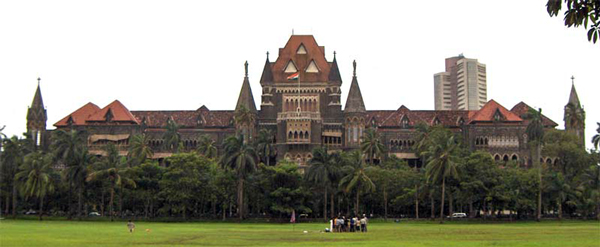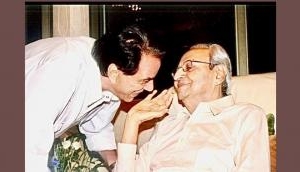
- The beef ban created a polarised controversy in its wake.
- The Bombay High Court, in November, decided to hear the petitions challenging the ban.
- Read on to find out how the Maharashtra government is justifying its decision.
The Maharashtra government, on 16 December, justified its decision to ban possession and consumption of beef in the Bombay High Court - basing it on the Directive Principles of State Policy as enshrined in the constitution.
The Bombay High Court is in the process of hearing a clutch of petitions challenging the beef ban in the state which came into effect through amendment of Maharashtra Animal Preservation (Amendment) Act.
The arguments
Advocate general Srihari Aney justified the state's decision saying that 'right to eat a particular kind of food' does not fall under the aegis of 'right to privacy' enshrined under Article 21 of the Constitution which also guarantees right to life. "It is part of fundamental duty of the state under the Constitution to take such a step (of imposing ban on beef)," he said.
Meanwhile, the senior counsel for one of the petitioners, Aspi Chinoy, had previously counteracted the ban by maintaining that by banning even the possession and consumption of beef, the state government was violating the people's fundamental right, that is, the right to choice of food which under the aforementioned Article 21.

File photo
Previously, a division bench of Justice Abhay Oka and Justice S C Gupte had on 9 December questioned whether ban was indeed an infringement on fundamental rights. The bench had then asked:
"Tomorrow if the state comes with a law that says no non-vegetarian food can be eaten, is it a violation of rights? Or suppose the state brings out a list of food that cannot be eaten, does it violate fundamental rights?"
What is the Maharashtra Animal Preservation (Amendment) Act?
Schedule 5 of the 1976 Act banned the slaughter of cows. The recent amendment, which received assent from the President, early this year, bans the slaughter of bullocks and bulls as well, deeming it a punishable offence with five-year jail term and Rs 10,000 fine.
Mere possession and consumption of bovine meat can implicate one with a year in jail and a penalty worth Rs 2,000.
What do the Directive Principles really say?
The Directive Principles are not enforceable by law, rather they are meant as administerial ideals, to be embodiments of the spirit of social and economic democracy. They are enshrined in part IV of the Constitution.
Article 48 of the Directive Principles is titled "Organisation of agriculture and animal husbandry" and reads -
"The State shall endeavour to organise agriculture and animal husbandry on modern and scientific lines and shall, in particular, take steps for preserving and improving the breeds, and prohibiting the slaughter, of cows and calves and other milch and draught cattle."
The dilemma remains however, in the interpretation. While some count the right to choice of food as a part of right to privacy (and life), some don't. And given that Directive Principles are not enforceable by themselves, do you think that the Maharashtra government in justified in its decision?
First published: 17 December 2015, 2:52 IST






![BJP's Kapil Mishra recreates Shankar Mahadevan’s ‘Breathless’ song to highlight Delhi pollution [WATCH] BJP's Kapil Mishra recreates Shankar Mahadevan’s ‘Breathless’ song to highlight Delhi pollution [WATCH]](https://images.catchnews.com/upload/2022/11/03/kapil-mishra_240884_300x172.png)

![Anupam Kher shares pictures of his toned body on 67th birthday [MUST SEE] Anupam Kher shares pictures of his toned body on 67th birthday [MUST SEE]](https://images.catchnews.com/upload/2022/03/07/Anupam_kher_231145_300x172.jpg)






